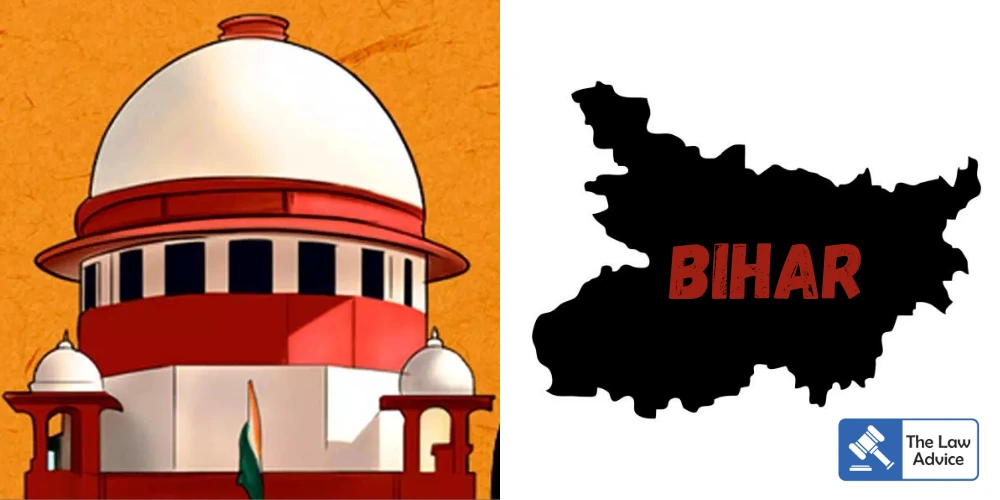New Delhi, August 14
The Supreme Court on Thursday issued strong transparency directives to the Election Commission of India (ECI) over the mass omission of approximately 65 lakh voters from Bihar’s draft electoral rolls following the Special Intensive Revision (SIR) drive.
A bench comprising Justice Surya Kant and Justice Joymalya Bagchi ordered that the district-wise names of all excluded voters, along with the reasons for deletion — such as death, migration, duplication, or other grounds — must be published online on:
• The websites of District Electoral Officers (DEOs) in Bihar.
• The website of the Chief Electoral Officer (CEO), Bihar.
The Court also stressed that these lists must be EPIC-based searchable so that voters can easily verify their own status.
Transparency as a Tool for Voter Confidence
Justice Kant underscored that putting the names and reasons in the public domain would boost voter trust in the institution.
When Senior Advocate Rakesh Dwivedi, for the ECI, argued that political parties had already been given booth-level lists, the bench questioned why voters should have to depend on party agents:
“Can’t you have a mechanism where they do not have to run after local political party? Why don’t you do it on internet also?” — Justice Kant
Justice Bagchi added:
“If you bring it in public domain, the narrative against the ECI disappears.”
The bench advised issuing a “layman-friendly” public notice in simple language, making it clear where voters can check their names and the reasons for omission. Justice Kant illustrated:
“If Poonam Devi has been omitted, Poonam Devi must be able to know that she has been deleted and why.”
Aadhaar Added to Inclusion Documents
The Court also directed that Aadhaar cards must be explicitly included in the list of acceptable documents for filing claims to restore names to the voter list.
While a July 10 order had already asked the ECI to consider Aadhaar, the bench noted that the card was still missing from the official list of 11 documents, potentially leaving voters unaware they could use it.
Justice Bagchi remarked:
“Your list of 11 documents seems citizen-friendly, but Aadhaar and EPIC are readily available… your notice can say that those who have not submitted so far can submit Aadhaar and EPIC also.”
Petitioners’ counsel Gopal Sankaranarayanan and Vrinda Grover urged that the files be uploaded in a searchable format. Justice Kant agreed, stating “it has to be searchable,” rejecting the ECI’s reliance on the 2018 Kamal Nath judgment, which held that voter lists need not be in searchable format.
The bench’s order lays out the following interim measures, to be implemented by the ECI by Tuesday:
1. District-wise publication of the list of approximately 65 lakh voters omitted from the draft rolls, with booth-level details and reasons for deletion, accessible via EPIC numbers.
2. Wide publicity in vernacular newspapers, TV, radio, and official social media channels of DEOs.
3. Physical display of the booth-wise lists, with reasons, on notice boards at Block Development and Panchayat offices.
4. Explicit mention in public notices that aggrieved persons may submit claims with a copy of their Aadhaar card.
5. The CEO Bihar to also upload the consolidated district-wise list on its website.
6. All online lists to be EPIC-based searchable.
Background of the Bihar SIR Controversy
• July 28, 2025 – SC refused to stop publication of the draft rolls but urged the ECI to consider Aadhaar and avoid “en masse exclusion.”
• July 29, 2025 – Reports emerged that 65 lakh voters were likely excluded. SC warned it would “step in” if mass exclusion occurred.
• August 6, 2025 – ADR alleged that omitted voters’ details were not disclosed and reasons were unavailable. ECI responded that it was not legally obligated to publish such lists or reasons under current rules.
• August 12–13, 2025 – Petitioners argued that the SIR was illegal and reversed the burden of proving citizenship onto voters. Two people allegedly marked “dead” in the draft rolls were produced in court.
• August 13, 2025 – SC questioned ECI’s residual powers under Section 21(3) of the Representation of the People Act, 1950 and Article 324 of the Constitution.
Next Hearing: August 22, 2025 — The Court will resume hearing the petitions, including W.P.(C) No. 640/2025, Association for Democratic Reforms & Ors. v. Election Commission of India, and connected matters.
